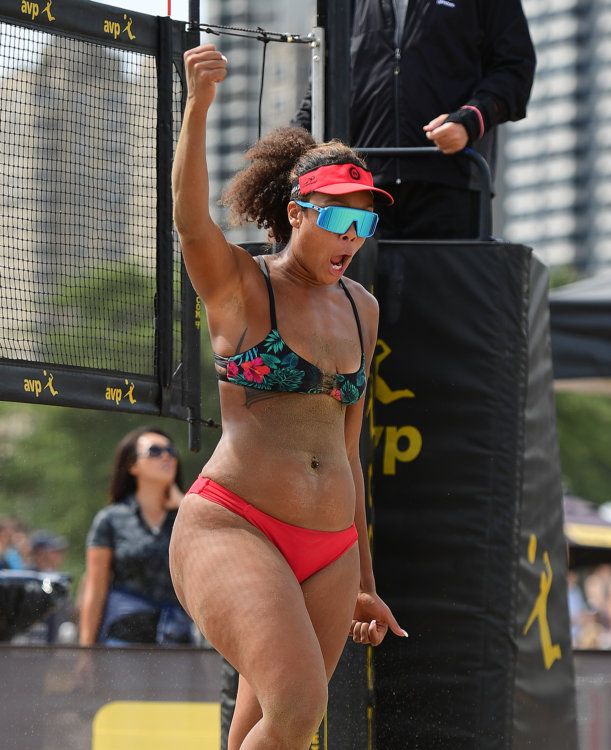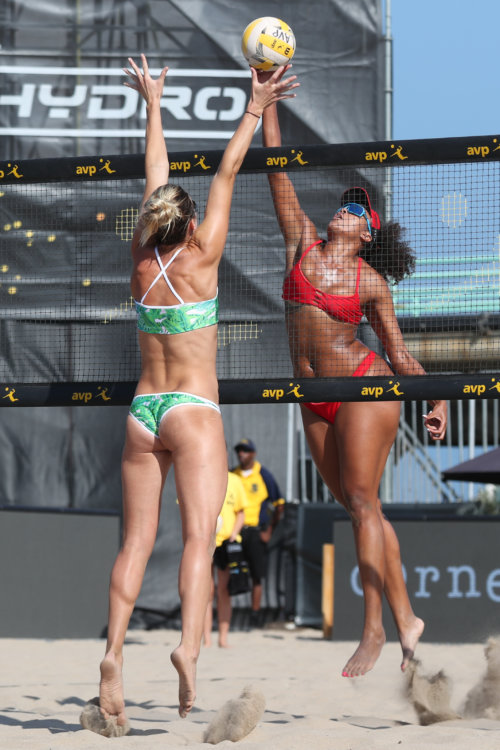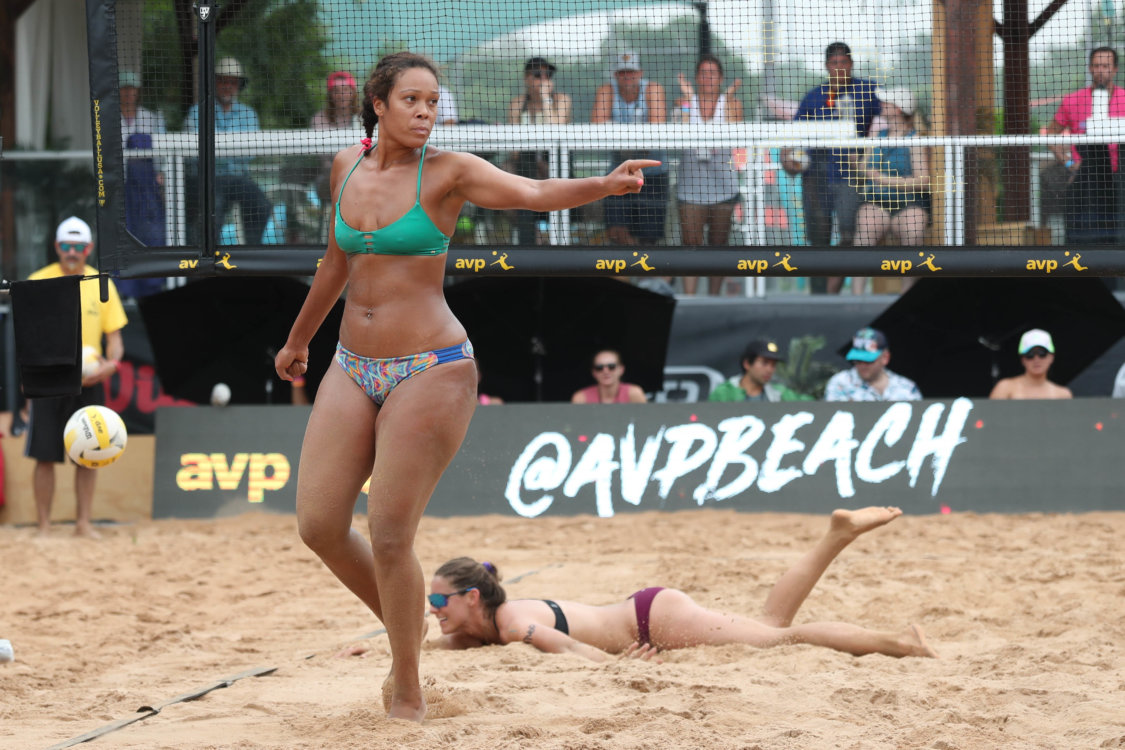The AVP’s Falyn Fonoimoana is a dominant blocker, explosive attacker, loud cheerer, and awesome person. She’s also a Black woman raising a young Black son, trying to navigate the prickly subjects of race and racism.

Falyn was born into a volleyball family; her uncle is Eric Fonoimoana. Yes – THE Eric Fonoimoana, the Gold medalist of the 2000 Sydney Olympics, “The Body.” Falyn grew up in Hermosa Beach and has known the AVP name forever; she even volunteered as a ball girl in elementary school. Volleyball is in her blood, an integral and eternal part of her life.
The Fonoimoana name preceded her when she committed to the AVP Tour in 2018; choosing to play for the AVP came with more pressure and expectations than the average person. One, because of her family name. But even more so, because Falyn is one of the few Black athletes on tour. As such, Falyn is vocal about the changes she wants to see in both society and our sport, and the AVP wants to amplify that voice.
Falyn and I had a long conversation about her experience as a legacy and Black beach volleyball player, systemic racism, ideas for the future, and navigating this new wave of activism and justice. I’ll be sharing Falyn’s story and her thoughts over three parts. First, I wanted to highlight her personal encounters with judgment – about her skin color, her potential, and her body.
Falyn’s ancestral background spans many races and countries. She is Black, English, Irish, Austrian, German, Hawaiian, Tahitian, and Samoan. Since the international social unrest and racial reckoning in late May, Falyn says she strives to be a warrior for truth and change. Putting herself out there and taking a stance hasn’t always been easy, but she’s keen to educate and activate her community.
“I never felt pressure to speak out,” Falyn says about her voice on Instagram and in conversation following George Floyd’s death. “It was more – how much do I want to put myself out there? Playing a majority white sport, I’m already a minority. And I already have a threatening presence to myself – obviously, I look different, I’m very loud when I play. It’s an image that people have. And I wanted to protect my family from hateful things that other people could say to us (as a result of my opinions). Which I feel I’m strong enough to take, but my family I was worried about.”

With this in mind, Falyn treads on these extremely challenging territories with intention and care. “I became more vocal,” she says, “because I saw so many people I grew up with, people I looked up to, saying super hurtful things.” As she read posts and comments from people in her world that displayed problematic behavior or thinking, Falyn began saying her truth to refute what she disagreed with. “I don’t know if they didn’t realize [it]; I don’t know if they thought it was okay. I’m not them. But I had to start speaking up on social media, letting them know [what they were saying] wasn’t okay.” Hearing Falyn’s approach and mindset, even when dealing with unfair judgment towards her, Falyn is careful to consider others’ points of view and experiences.
Falyn has not universally received that same consideration. And not just toward her viewpoints, but also about her appearance. “[I would hear upsetting remarks and] it started off that I just thought I was out of shape,” she says. “But now, I think it’s that I’m Black, and I have a big butt, and I’m thicker than everybody else. Me coming out there and being confident in a bathing suit, even when I started in the AVP my first year, I heard people talk about me as I walked in, saying, ‘Who does she think she is?’ And, ‘She should be more covered up.’ My family being a volleyball family, people didn’t say it too loud. But it felt like people thought I wasn’t going to be good because of my body type. I’m judged all the time. For me, I don’t look at other people’s bodies and judge them. I judge them based on their performance.”
It didn’t take long for Falyn to rewrite the narrative and recenter herself. “Last year, I just decided to screw it,” she says. “I am who I am, and I’m beautiful. I have a man who loves me. God made me this way. So, who cares if other people don’t accept me for who I am and what I look like as long as I’m doing what I love?”
With the acceptance of herself, Falyn discovered her impact was more meaningful and profound. “I’m showing little kids everywhere, whether they’re Black, white, Mexican, Asian – if they are bigger, we can still do this. If they’re tall and skinny but have black skin, you can still come out here and play beach volleyball. And I realized as I grew more confident, I was giving more confidence to my audience of minorities.”
I see Falyn’s confidence as admirable and contagious. She exudes self-assuredness always – in her demeanor, in her play, and throughout the unwavering torrent of difficulties this summer. In our next piece, Falyn will dive into her thoughts about racial injustice and her journey of advocacy for social change.
